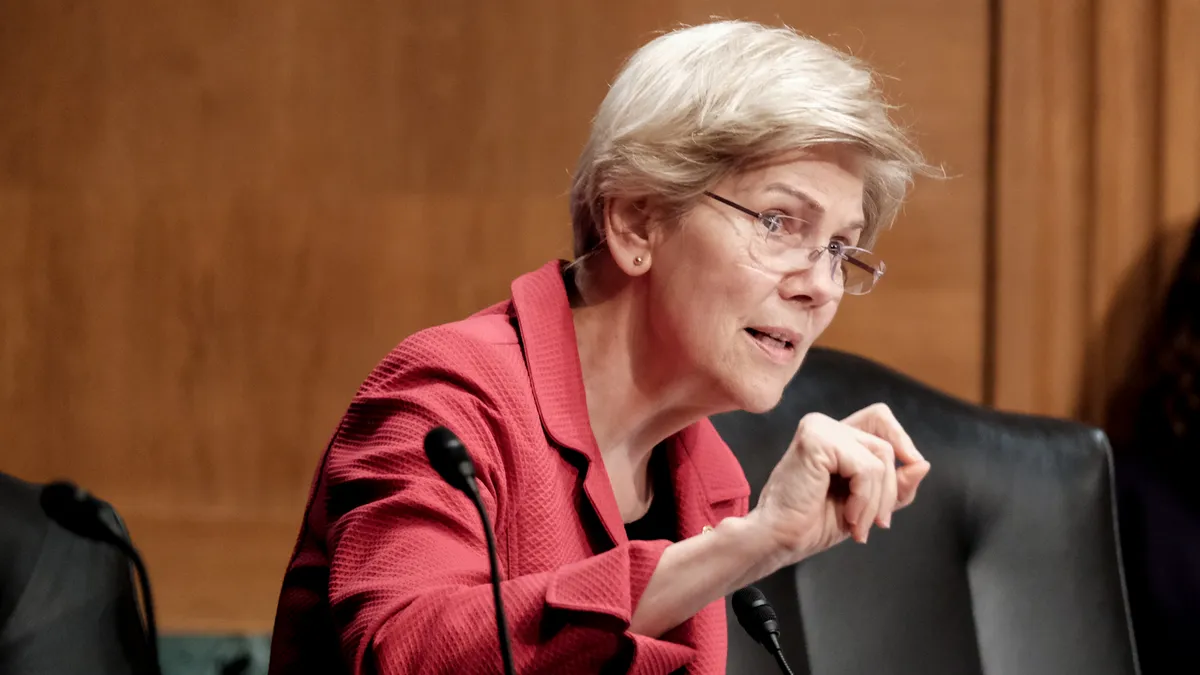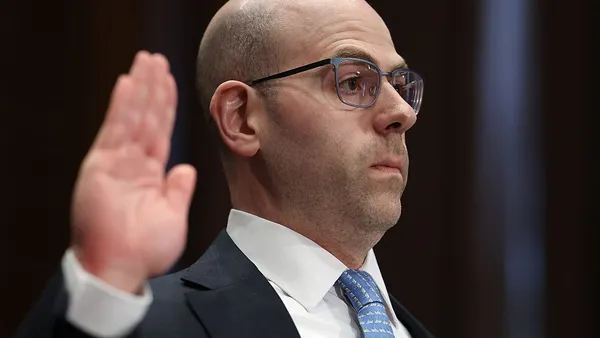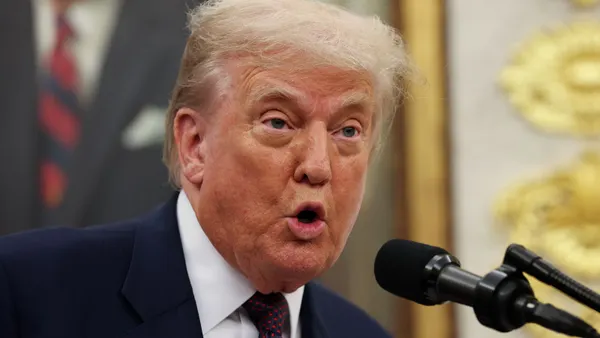Dive Brief:
- Sen. Elizabeth Warren, D-MA, this week called out the Financial Industry Regulatory Authority over its “record-low” number of enforcement actions concerning financial crimes.
- In a Wednesday letter to FINRA CEO Robert Cook, Warren pushed for an explanation, noting a recent report that revealed fines imposed by FINRA have decreased and the number of enforcement actions the agency issued last year was the smallest since the private, self-regulatory organization was founded in 2007. FINRA regulates U.S. broker-dealers and their representatives.
- To Warren, that appears to indicate “that the decline in enforcement is part of a deliberate deregulatory effort,” she said. “Financial crimes cannot be prevented if you take the cop off the beat.” A FINRA spokesperson said the agency will respond to the senator’s letter.
Dive Insight:
In the letter, Warren noted that FINRA launched a transformation initiative seven years ago geared toward efficiency; since then, fines levied and enforcement actions issued have “dramatically decreased.”
FINRA issued 426 enforcement actions last year, and its caseload has declined about twofold since 2015 – the agency’s peak – according to a June Bloomberg report. The agency levied $88.4 million in fines last year – just more than half the $173.8 million it demanded in 2016.
Moreover, the agency is issuing fewer press releases than it used to, limiting transparency of its enforcement actions, Warren noted. “It is unclear how this represents an improvement in investor protections,” she wrote.
A FINRA spokesperson has said “any suggestion that we have let up on our regulatory focus is just dead wrong” and claimed that the decline is due to “reduc[ing] the number of bad actors.” But Warren charged that there’s “no evidence to that effect.”
Warren pointed to the Securities and Exchange Commission’s enforcement numbers remaining relatively steady, and noted that an ex-FINRA senior counsel conveyed skepticism that fewer bad actors exist today.
It’s not the first time Warren has expressed concern over FINRA’s actions: She’s peppered the agency with questions in recent years, expressing concern the agency was allowing brokers to scrub customer complaint records, and questioning its ability to protect consumers in the wake of the GameStop controversy.
The Bloomberg report “raises fresh alarms” and suggests “that FINRA has lost sight of its mission: protecting investors and promoting market integrity,” Warren said.
Warren pressed Cook for answers to a series of questions by Sept. 13. She asked for yearly numbers, since 2016, of investigations opened by FINRA and what prompted them, as well as how many resulted in enforcement actions, fines (and the average amount), expulsions and broker suspensions.
Warren also seeks more information around the agency’s issuance of press releases, details on FINRA’s transformation initiative, and changes made to enforcement policies through it. And she prodded Cook for evidence that the agency has reduced the number of “bad actor firms and individuals over time.”
The SEC oversees FINRA, and SEC Chair Gary Gensler is copied on the letter.
It’s the latest regulatory point of contention for Warren, who serves on the Senate Banking Committee. This year, she called out Federal Reserve Chair Jerome Powell over the Fed’s outlier status on a long-delayed rule to curb incentive-based compensation arrangements for bank executives, and blasted his “cozy relationship” with top bankers.
Warren has also urged regulators to move ahead on efforts to finalize Basel III to strengthen capital requirements for big banks, and taken aim at the Office of the Comptroller of the Currency for approving New York Community Bank’s merger with Flagstar Bank.













